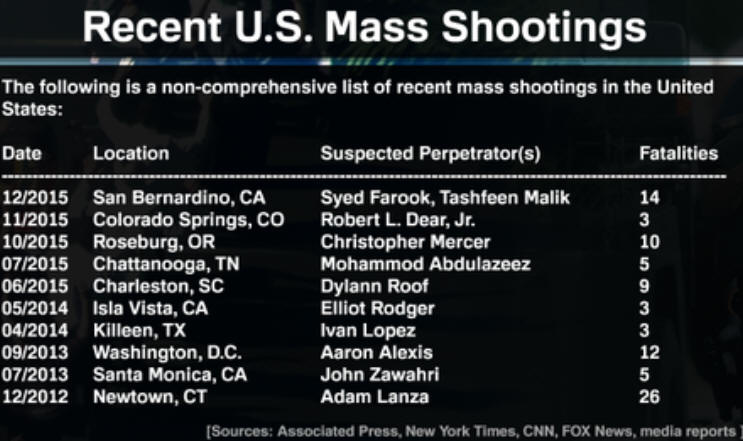The people of Iran are not calling for death to America. The country used to force it's people to have anti-American rallies in the streets, but they were a political farce. They were a forced event by the radical Islamic Leaders, that the general population did not participate in willingly, nor ideologically. And in fact, most of the population of Iran have a very positive inclination toward the U.S., and especially it's people, even if not so much for our government. This has been proven by countless news documentaries and even video travel shows. And this has been true of most Islamic nations in the middle east.
I think this is going to be a hard point to take (or make successfully, on my end) but there is always a disparity between what a religion teaches (pure religion) and how its adherents keep that faith. But what I take as axiomatic - and this is probably going to be a sticking point that we will not agree upon - is that religions are spiritually inspired. And therefore, the religion itself is either inspired of God or of the devil (or even just man's imagination). The Qu'ran and the Bible do not come from the same source. That should be patently clear to anyone with even a passing familiarity with both of them.
As a Christian, I believe that the revelation of God as found in the Bible is truth and inspired by God Himself. All religions have that element of revelation. But what is the source of that revelation? If there is no such thing as Truth in the absolute sense, then we can pick and choose which we will believe and it's okay. But if some of (most of) these systems clash at some foundational point, then it can't be that they come from the same source. If that's the case, then whatever that source is is against itself and denies that any Truth is knowable. So if someone accepts that there is true religion, then they must, of necessity, accept mutual exclusivity and ultimately that there is only one Truth.
Jesus Christ claimed exclusivity for Christianity (as sprouted from the OT covenants) :
Jesus saith unto him, I am the way, the truth, and the life: no man cometh unto the Father, but by me.
John 14:6
Then said Jesus unto them again, Verily, verily, I say unto you, I am the door of the sheep.
All that ever came before me are thieves and robbers: but the sheep did not hear them.
I am the door: by me if any man enter in, he shall be saved, and shall go in and out, and find pasture.
John 10:7-9 (small part of a larger discourse that establishes Jesus' exclusivity, calling and purpose)
So while there are many who call themselves Christians, the numbers that are actually Christ's is probably a far smaller number.
In a similar way, what Islam is (spiritually) is probably not really known by many (most?) Muslims. But history shows that it is first and foremost a militaristic and dominating religion that cannot tolerate servanthood. By contrast, Jesus said that those who would be greatest in the Kingdom of Heaven would be servant of all (Matthew 23:11). Even in the OT, God subjected Israel to slavery for over 400 years in Egypt - for the reason that He wanted them to remember what it was like so they didn't enslave anyone else! The OT is not a simple dissertation on true religion, but the experiences of those chosen of God to represent Him. They were seen for what they were - warts and all.
So while I would agree that it is possible - even likely - that the vast majority of Islam doesn't know what they are involved in, I believe that Islam is not inspired of God but rather inspired by something in direct contrast to Him as Islam has traditionally persecuted (often mercilessly) those who hold to the Bible (and the Qu'ran even directs this).
You may use the argument that Christians led the crusades. And I would, again, point out that this is not something that is entirely congruous with Christian scriptures. So I would argue that the crusades were largely Christians acting unChristian-like (in the true sense) while Jihad and terror is Islam acting in perfect accord with its energizing spirit. Again...compare the revelations of the Bible and of the Qu'ran
You make the classic mistake of assuming that ISIS is representative of all Islam, when in fact ISIS doesn't represent Islam any more than the Heaven's Gate/Jim Jones cults, or the klu klux klan represents Christianity.
I think that's a facile comparison. Returning to my above argument, the core revelation of Christianity and the core revelation of Islam should be the mark of what fundamentalism should be. While ISIS is indeed indicative of a split in Islam, the fact remains that both Sunni and Shia believe in militaristic jihad and that even though ISIS is looking to dominate over the Shia (I think I have that straight), death to America and Israel and a universal caliphate are still foremost in their minds. The difference between the two is which one will rule the world. As a non-Muslim, does that distinction really matter to me?
But ISIS does represent the core of Islam's revelation whereas the KKK doesn't. And calling Heaven's Gate and Jim Jones in any sense Christian doesn't hold water since I don't think HG ever claimed Christianity and Jim Jones clearly was not (I think someone even said he hated Christianity). Either way, these fringe groups are not Christian in the thorough-going sense of the word.
The problem is not Islam, nor is it the words in the koran (the Bible has plenty of it's own absurd archaic admonishments to murder).
I would challenge that last statement directly. While the bible enjoins capital punishment, there are very few situations that could be used to support your claim. And the very few that could are to be understood historically (for that is what they were - single instances in which God did command total obliteration of enemies). But note the difference between that as a standing order and that as an historically specific situation. While one might reasonably question how ethical that was, you can't escape the fact that God calls Himself holy and hates idolatry. Israel was to be His peculiar people - set apart for Him. And as they were looking to enter the land (and did have to fight to get there), if they were to remain representative, they couldn't have idols in their midst and so the order to eradicate a people in a given land (every last one in the geographical area) was meant to preserve that separation to God. Note that God wasn't saying "Kill the infidel wherever you find him" but to uphold Israel's own integrity, the Lord required purity. And before you shout "supremacist", note that this was a type - a foreshadowing - of the purity to be found in Christ. It wasn't an excuse for racism. Only separation. Israel was not to think of themselves as the greatest, but as the least (which was why God chose them). And that is found more fully in the spirit of Christ and the scripture I quoted above. Israel's own laws given by God were harsh - but they were for Israel and not the surrounding nations. God has a high standard and He was holding Israel to that standard.
The Qu'ran, on the other hand, is sometimes self-contradictory and rambling. But it is clearly supportive of ongoing militarism and destruction. It is not a religion of peace but of subordination and one that demeans human life.
The problem is radical extremism, which can infect Christianity and Judaism, as well as other religions, just as easily as it can infect Islam. At this current time in history, it seems to have infected Islam to the greater degree. But make no mistake, there are no small number of radical extremist Christians in the U.S. that could become deadly at any time given the right conditions.
Again, the argument against fundamentalisms is not even consistently used - otherwise Islam would be more roundly rejected (more Muslims acting consistent with its foundations than Christians with theirs) and Christianity (under which the West has flourished for several centuries) would be more largely accepted. The reason for that argument is to reject revealed religion (period) and have man at the center. That's really what is meant (generally today) by fundamentalism - anyone who actually believes in a transcendent God where man is NOT worshipped and God is. It's humanism in thin disguise.
The problem here is not the religion, it's the radical extremism that infects religious ideology and drives people to violence.
Violence and resistance...where is the line? War may be ugly, but sometimes it's necessary to resist unto blood for something that is right. If one accepts that violence is the worst thing there is, then they are for complacency and tacit acceptance. Because if there is an enemy that is willing to resort to violence, then there will be violence - unless you capitulate. So whether one fights back or just resists, violence is inevitable - but is principle?




